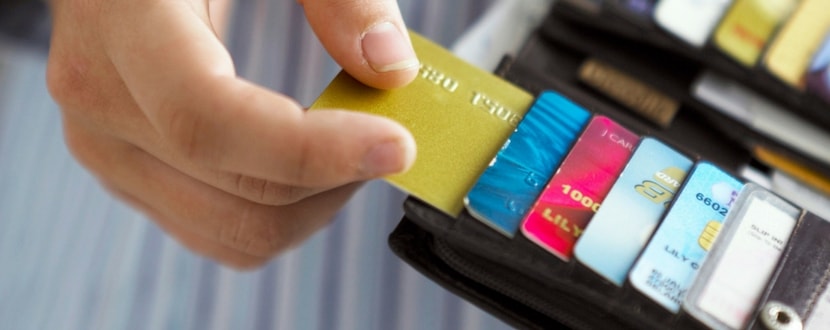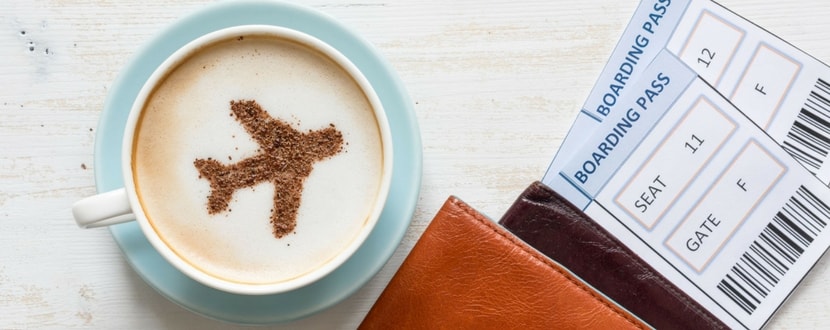We set the record straight for the most common credit card myths in Singapore.
It’s common to hear horror stories about credit cards in Singapore. Basic financial prudence teaches that we should avoid loans and debt, and many think those are synonymous with credit cards. But in reality, most cardholders don’t create debt with their cards.
Truth is, there’s no logical reason to be scared of this tiny piece of plastic. Here are some of the most popular credit card myths we Singaporeans believe in, and the facts to set it straight.
Myth 1: Credit Cards Will Put You In Debt
One of the biggest myths about credit cards is that they cause never-ending debt. With interest rates as high as 25% per year and stories such as the sales officer who owed S$1.5 million on 5 credit cards, it’s an easy myth to perpetuate. However, a credit card is only as dangerous or useful as its owner. If it is used by a person with good money habits, credit card debt need not be an issue.
Fact: Credit cards don’t charge interest if bills are paid in full each month
Credit cards have an interest rate of about 2% per month. However, the interest is only applied on outstanding debt at the end of the billing cycle.
When you use a credit card to pay, you have around 27 days to make full repayment. If you do so, there is no interest levied (2% interest on $0 is $0). Most credit card holders use their cards this way – as of 2015, only 5% of Singaporean credit card holders had rollover debt (did not pay in full).
Fact: Credit card interest can be avoided with a balance transfer facility
If a credit card owner cannot make full payment, they have the option to use a balance transfer facility. This is when an outstanding balance on a credit card gets transferred onto another credit card, and charged 0% interest for a given period (often six months). If the full amount is paid within the 6-month period, the card’s high interest rate can be avoided.
Myth 2: Making the Minimum Payment is Enough
Credit card issuers will typically require a minimum payment each month. This is usually 3-5% of your outstanding balance or a certain amount like S$50, whichever is greater. The words "minimum payment" can be confusing for new credit card holders, who might think that's all they owe each month. Instead, they should look at their total current balance to see what they owe.
Fact: Making only the minimum payment is what leads to credit card debt
As mentioned earlier, credit card interest rates apply to any outstanding balance at the end of each billing cycle.
Let’s say a cardmember owes S$5,000 on a credit card with an annual interest of 28% and a minimum repayment of S$150. If only S$150 is paid every month, it would take the cardmember 66 months to pay off the full amount. In the process, the cardmember also accumulates S$4,782 in interest, bringing the total amount repaid to S$9,782.
Fact: Pay as much as possible to reduce interest (if possible, pay the full amount at once)
A good guide would be to choose a figure that pays off the balance in 12 months or less. Here’s a simple way to estimate what the monthly payment should be.
(Current outstanding x 1.yy) / 12, where yy = annual interest rate.
Going back to the example of the S$5,000 credit card debt with a 28% interest rate, the calculation would then go like this:
Step 1: S$5,000 x 1.28 = S$6,400
Step 2: S$6,400 / 12 = S$533.33
The cardmember should be paying S$530 each month, in order to pay off the balance within a year. If it’s not possible to pay this in a year, then the cardmember should try 18 months, 24 months, etc. Because interest accrues every month, it’s a good idea to pay an outstanding balance as soon as possible. The larger a payment is made each month, the less is paid in interest charges.

Myth 3: Credit Cards Use Will Lower Your Credit Score
Some Singaporeans believe that staying away from credit cards and loans will keep their credit score high. If there is no debt, then there’s no way for a credit score to drop.
Fact: Responsible Credit Card Use Can Improve Credit Scores
A person’s credit score measures the ability to use borrowed money responsibly. Lenders use this score to gauge the likelihood that a debt is repaid. In other words, the score looks at borrowing behaviour and rates it accordingly.
A person who has never used a credit facility will have a score of Cx. This means there is no record of how reliable that person is when it comes to repaying debt. Banks are more comfortable with credit card applicants with a BB rating than a Cx rating, as they would rather have proof of responsibility.
Using a credit card responsibly and paying bills in full and on time every month can give cardmembers the much-desired AA credit rating. This will help secure critical financial loans later, such as a home loan or car loan.
Even if full repayments are not made, credit scores will remain intact if the minimum amount is paid.
Myth 4: You Can’t Save Money with Credit Cards
Psychologically, it’s easier to spend on a credit card because it does not represent actual money. Instead of focusing on the cost, buying on credit lets people focus on the purchase, and the impact of the shopping spree isn’t felt until the end of the month. With that in mind, it seems like credit cards are only good for encouraging mindless spending.
Fact: The Right Credit Card Can Help You Save Money
If credit cards are used purely as a mode of payment and paid back in full every time, cardmembers can save money on everyday transactions. This is because credit cards often have special offers and discounts for partner retail stores, restaurants, and websites.
Credit cards also give rewards in the form of points, which can be exchanged for freebies like store vouchers. Some credit cards give specific reward points in the form of air miles, which can be redeemed for free Business Class upgrades or even free flights.
Then there are cash rebate credit cards, which credit back a small percentage of your spend each month, typically around 5-8%. However, they usually require cardmembers to spend a minimum amount on the card each month, usually S$500, on specific categories like groceries, dining, and petrol.
The trick to saving money with credit cards is to find one that matches your spending habits. Families with a car can benefit from a cashback credit card, whereas young adults that enjoy travel can save on plane tickets by spending with an air miles card.

Myth 5: Credit Cards Encourage You to Spend Beyond Your Means
Most credit cards come with a credit limit of two to four times your monthly income. Many Singaporeans see this as an invitation to buy things they would not normally be able to afford if they were paying in cash.
Fact: You can lower your credit limit to control spending
Cardmembers can call up their issuing bank and ask them to lower their credit limit. A simple way to control spending is to limit your credit to less than your monthly income. This ensures that, no matter how much is spent on the card, you can pay it back.
Myth 6: You Can Lose Your Home if You Can’t Pay Your Credit Card
Many Singaporeans tend to imagine the worst in case they can’t meet their card’s minimum payment. One of these concerns is that their home might get possessed by the bank if they are unable to make payments.
Fact: Credit cards are unsecured loans and don’t require collateral
Most credit card holders never get to the point of default (this is when the bank writes off a debt as an unrecoverable loss). But even in the improbable situation that it happens, a credit card is an unsecured loan.
Unlike a home loan or car loan (these are secured loans), there is no collateral involved. Cardmembers do not have to pledge their home, car, or other assets to back their credit card debt.
The bank is taking on a risk and trusting cardmembers when they issue the card. This is why credit card interest rates are so high.

Myth 7: Air Miles Credit Cards Are Only for High-Income Earners
Travel credit cards offer premium perks like VIP airport lounge access, business class upgrades, and free flights, which gives many Singaporeans the impression that they are expensive and accessible only to high-income earners.
Fact: Singaporeans earning a S$30,000 annual income can qualify for some air miles cards
While the majority of travel credit cards in Singapore require an income of at least S$50,000 a year to qualify, Singaporeans with an annual income of S$30,000 can qualify for the DBS Altitude Visa Signature Card and the American Express Singapore Airlines KrisFlyer Card. These cards come with bonus miles and travel privileges.
| DBS Altitude Visa Signature Card | American Express Singapore Airlines KrisFlyer Card | |
| Minimum annual income requirement (Singaporeans and PR) | S$30,000 | S$30,000 |
| Miles earned per S$1 spent locally | 1.2 miles | 1.1 KrisFlyer mile |
| Miles earned per S$1 spent overseas | Up to 3 miles until 28 Feb 2017 | 2 KrisFlyer miles in June and December |
| Welcome bonus | New cardmembers receive 15,000 bonus miles when a minimum of S$1,000 per month is charged to the Card for the first 2 months from card approval date | Receive 5,000 KrisFlyer miles the first time you charge to the card Receive 3,000 KrisFlyer miles when you spend S$700 in the first 6 months upon Card approval |
| Other travel privileges | 2 Complimentary Global Airport Lounge Access visits within each 12-month period of Priority Pass™ Membership 24-hour concierge services to plan your vacation, organise dining reservations, arrange airport transfer and more Up to S$1 million travel accident insurance coverage when the full travel fare is charged to your DBS Altitude Card | Earn 2 KrisFlyer miles for every S$1 spent on eligible purchases made on singaporeair.com, silkair.com, KrisShop and at SilkAir SkyShop, both in-flight and online All miles earned with the American Express Singapore Airlines KrisFlyer Credit Card are conveniently credited directly into the KrisFlyer account Complimentary Travel Inconvenience & Travel Accident Benefits of up to S$350,000 |
Fact: Some rewards cards let you convert reward points to miles
While not as efficient as air miles cards, shopping rewards cards like the Citi Rewards Card and the OCBC Titanium Card offer the option of converting your reward points into air miles. Both cards are accessible to most Singaporeans, with an annual income requirement of S$30,000.
| Citi Rewards Card | OCBC Titanium Card | |
| Minimum annual income requirement (Singaporeans and PR) | S$30,000 | S$30,000 |
| Reward points earned | 4 miles for every S$1 spent on clothes, bags, and shoes purchased at department stores or online | 2.5 miles for every S$1 spent on clothes, electronics, baby wear, and personal care products online and offline (25,000 OCBC$ = 10,000 KrisFlyer miles) |
| Conversion fee from points to miles | S$25 | S$25 |
Myth 8: Credit Card 0% Instalment Plans are Free
Credit card instalment plans make big-ticket items more affordable by splitting up the price into 6- or 12-month fixed instalments, at 0% interest. This becomes especially useful if a major purchase is needed, but cannot be repaid in full by the due date. However, cardmembers need to note that there may be some fees and costs involved, especially if they don’t meet the monthly payment.
Fact: There are processing fees and cancellation fees
Before the instalment plan kicks in, cardmembers need to pay a processing fee ranging anywhere from 1.5% to 5%. The fees vary according to the amount charged and the length of the instalment plan. Before signing on to the instalment plan, cardmembers must read the terms to find out what the fees are.
While instalment plans can be stopped anytime, an administration fee will be charged for repaying the amount early, cancelling the plan, or cancelling the card. The fee can be anywhere from S$100 to S$150. In case the plan or the card is canceled, cardmembers need to pay the remaining balance or purchase price in full.
Fact: Cardmembers get charged interest if the monthly payment is not made
The instalment plan is only interest-free if it is paid in full and on time. If a cardmember skips a payment, there will be finance charges, late payment charges, and interest imposed on the outstanding amount. Instalment plans must be treated as a fixed cost, and cardmembers must make sure to budget around each monthly payment.
Read This Next:
Similar articles
5 Types of People Who Must Get Personal Accident Insurance
Singapore Budget 2023 - All the CPF-related Changes To Know
7th Lunar Month Superstitions That Can Save You Money
Why Did Singaporeans Lose Money in the CPF Investment Scheme?
5 Affordable Destinations for Different Types of Travellers
Millenial Loan Sharks: 5 Scammy New Tactics to Watch Out For
CNY: How You Can Use Ang Baos To Teach Kids Financial Literacy?
Best Prawning Spots In Singapore To Cast Your Rod (2021)










